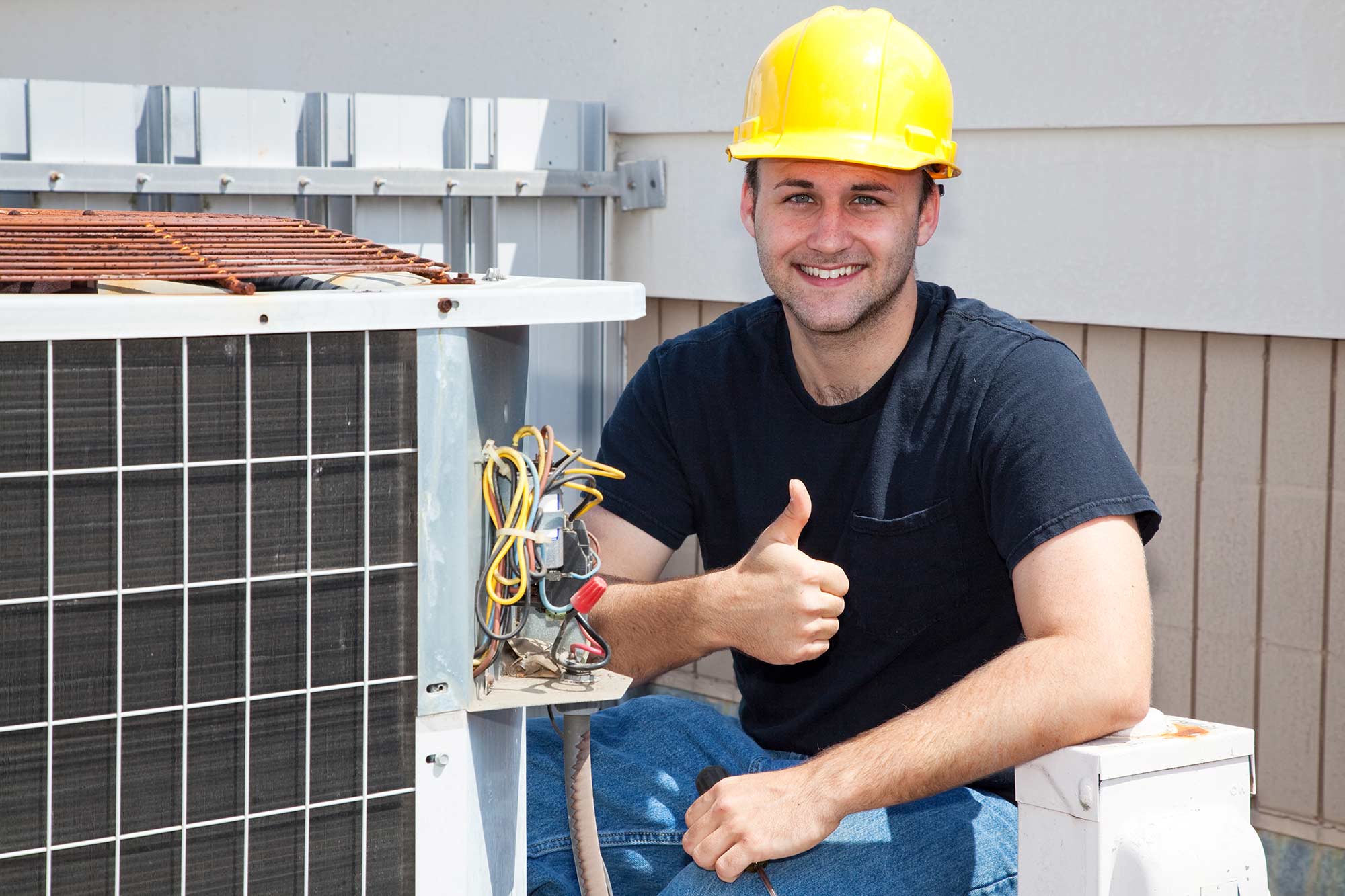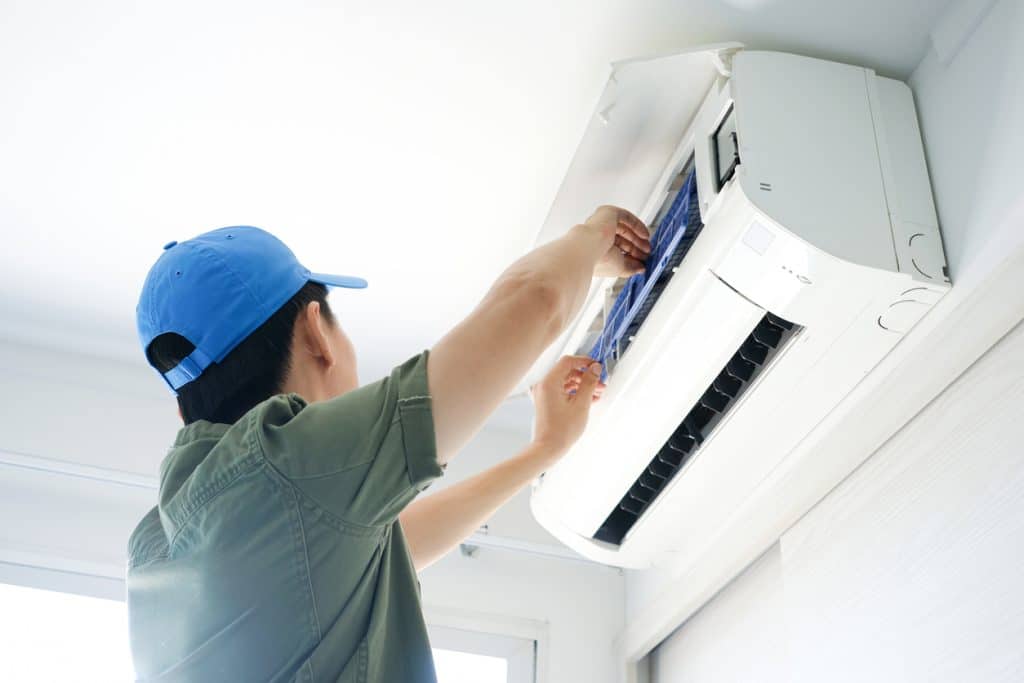When to call the pros for a quick ac fix
Everything about A/c: Identifying Common Issues and Effective A/c Fixing Methods
Heating and cooling systems are essential for maintaining indoor comfort. Recognizing their components and functionality is important for identifying common problems. Home owners often encounter troubles such as inadequate cooling, unusual odors, or climbing power expenses. These indications can suggest underlying concerns that might need attention. Discovering do it yourself troubleshooting strategies can be advantageous, but recognizing when to look for expert help is equally vital. What steps can be taken to assure resilient efficiency?
Comprehending Your A/c System: Elements and Capability
An a/c system, frequently taken into consideration the foundation of indoor climate control, consists of several essential components that collaborate to manage temperature and air top quality. The primary elements include the home heating system, ventilation system, and cooling unit. The home heating device, generally a furnace or boiler, creates heat during colder months, while the air conditioning system cools down interior rooms during the summer.

Common HVAC Troubles Home Owners Encounter
Property owners typically encounter numerous typical HVAC issues, consisting of inconsistent temperature level distribution throughout their home. Additionally, unusual sounds during operation can show underlying concerns that require focus. Attending to these worries quickly is essential for keeping ideal system efficiency.
Inconsistent Temperature Distribution
Numerous homes experience the discouraging problem of irregular temperature distribution, where specific areas feel annoyingly cozy while others remain too chilly. This trouble typically emerges from a variety of elements, consisting of poor insulation, blocked vents, or a poorly sized heating and cooling system. When air ducts are not adequately sealed or when furniture blocks air flow, some spaces may get not enough air conditioning. Additionally, thermostat placement can significantly affect temperature level law; a thermostat situated in a sunlit location might misrepresent the total temperature of the home. Regular upkeep, including cleaning filters and making certain ductwork is clear, can help reduce these discrepancies. Home owners might also consider zoning systems to better control temperature levels throughout various areas of the home, promoting a much more comfortable living atmosphere.
Unusual Noises During Procedure
When a HVAC system runs, uncommon sounds can suggest underlying problems that need attention. Property owners may come across an array of audios, such as grinding, squeaking, or hissing. Grinding noises frequently indicate damaged bearings or elements, while squeaking can recommend loose belts or components needing lubrication. Hissing might indicate a cooling agent leak, which can endanger the system's efficiency. Additionally, banging noises might aim to loose ductwork or a concern with the blower fan. Each of these sounds acts as a caution, prompting property owners to examine even more. Disregarding these signs can cause more considerable troubles and expensive fixings. Regular upkeep and punctual focus to uncommon noises can boost system longevity and efficiency, ensuring a comfortable living setting.
Indicators That Indicate Your A/c Needs Repair Service
How can one inform if their cooling device is in requirement of repair service? Several signs may indicate underlying problems calling for specialist interest. If the Air conditioning fails to cool down the room efficiently, it might suggest a cooling agent leakage or compressor malfunction. In addition, a boost in power expenses without corresponding use changes might signify inefficiency in the system. Property owners must also be alert to unusual scents rising from the unit, which might indicate mold and mildew development or electrical concerns. If the A/c frequently cycles on and off, it might be a sign of a malfunctioning thermostat or various other mechanical problems. Ultimately, the existence of water merging around the system can indicate a clogged up drain line. Acknowledging these indicators early can conserve money and time, making certain that the air conditioning system runs successfully and successfully.
DIY Troubleshooting Techniques for A/c Issues
When facing cooling and heating issues, home owners can use several do it yourself fixing methods to recognize the problem. Trick techniques consist of examining thermostat setups, inspecting air filters, and reviewing drainage problems. These steps can aid determine typical malfunctions prior to seeking professional assistance.
Examining Thermostat Settings
What steps should homeowners take to ensure their thermostat settings are proper? They need to validate the thermostat is set to the preferred temperature level and setting, whether heating or cooling. Looking for a clear display screen and verifying the thermostat is not set to "hold" or "trip" mode is essential. Home owners must also verify that the thermostat is level and mounted in a place free from drafts, straight sunshine, or other temperature level affects. Additionally, recalibrating the thermostat can help provide precise readings. If the thermostat runs on batteries, replacing them might resolve any kind of issues. By methodically evaluating these elements, house owners can commonly recognize and rectify thermostat-related problems, promoting suitable heating and cooling system efficiency.
Inspecting Air Filters
Air filters play a vital function in maintaining optimal a/c performance. They catch dust, allergens, and various other fragments, making sure tidy air circulation. Over time, filters can become clogged up, reducing airflow and effectiveness. To evaluate air filters, individuals ought to first locate the filter, frequently located in the return duct or near the heating system. Once situated, they need to assess the filter's problem-- if it shows up dirty or tarnished, it most likely requirements replacement. The majority of filters need transforming every 1-3 months, depending upon usage and ecological aspects. Normal assessment and prompt substitute of air filters not only boost air top quality yet additionally prolong the life-span of cooling and heating systems, preventing potential breakdowns and expensive repairs.
Reviewing Drainage Issues
How can home owners properly identify and deal with drain issues within their cooling and heating systems? Initially, they should examine the condensate drain line for clogs or clogs, which can lead to water build-up. House owners may make use of a wet/dry vacuum to remove any kind of debris obstructing the line. Next, examining the drain pan for corrosion or leaks is crucial, as a harmed frying pan can trigger water to overflow. Routine cleaning of the drainpipe line with a combination of vinegar and water helps protect against future obstructions. Furthermore, making certain correct slope of the drain line promotes reliable water circulation. If these do it yourself methods do not deal with the issue, seeking advice from an expert cooling and heating service technician might be essential to prevent prospective water damage and system failing.
When to Call a Professional for Air Conditioner Repair Work

While some a/c concerns can be handled through do it yourself methods, there are circumstances where calling a professional comes sites to be necessary. Property owners should look for skilled help when they encounter consistent problems, such as inadequate cooling, odd noises, or uncommon odors rising from the system. These signs and symptoms may suggest deeper problems that need specialized expertise and devices to detect and repair properly.

Preventative Upkeep Tips for Heating And Cooling Longevity
Normal preventative upkeep can significantly enhance the long life of cooling and heating systems. House owners must schedule yearly inspections by qualified service technicians to examine system efficiency and determine potential problems. Routinely transforming or cleaning up air filters is essential, as this assurances correct air movement and minimizes strain on the system. On have a peek here top of that, inspecting and securing ductwork avoids power loss and improves general efficiency.
It is additionally advisable to maintain the exterior unit clear of particles and vegetation, enabling for peak air movement and heat exchange. Home owners must inspect the condensate drainpipe for clogs to stay clear of water damages and mold and mildew development. In addition, maintaining appropriate thermostat settings and making use of programmable choices can enhance power performance. Recording upkeep tasks assists track service history and can aid in recognizing reoccuring concerns. By adhering to these preventative actions, individuals can make the most of the efficiency and lifespan of their heating and cooling systems
Often Asked Inquiries
How Typically Should I Replace My HVAC System Filters?
A/c system filters must generally be changed every one to 3 months, depending on use, filter type, and environmental variables. Routine substitute assists keep efficiency and air quality, guaranteeing peak system efficiency throughout the year.
What Dimension HVAC System Do I Required for My Home?
To figure out the appropriate cooling and heating system size for a home, one must take into consideration square video, insulation high quality, and regional climate. Consulting a specialist can help assure optimal performance and comfort for the specific living space.
Are There Eco-Friendly Heating And Cooling Options Available?
Yes, green cooling and heating options are offered, consisting of energy-efficient heatpump, solar-powered systems, and geothermal home heating. These alternatives lower energy consumption and ecological impact, advertising sustainability while maintaining reliable climate control for residential and commercial areas.
Just How Can I Enhance My a/c System's Power Efficiency?
To improve a/c energy effectiveness, one can routinely keep the system, seal air leaks, mount programmable thermostats, make use of energy-efficient filters, and guarantee appropriate insulation throughout the home to reduce power intake and enhance performance.

What Is the Typical Life-span of a Cooling And Heating System?
The average lifespan of a heating and cooling system normally ranges from 15 to 25 years, relying on factors such as maintenance, use, and the Bonuses quality of installation. Regular upkeep can greatly extend its operational longevity.
Final thought
In summary, a complete understanding of heating and cooling systems encourages homeowners to determine typical concerns and address small troubles effectively. Recognizing indicators of malfunction, employing do it yourself fixing methods, and focusing on normal maintenance can improve system efficiency and efficiency. Nevertheless, when confronted with complex repairs, getting specialist assistance is important to guarantee safety and security and durability. By promoting awareness and proactive treatment, individuals can enjoy a comfortable interior environment while reducing unanticipated prices connected with a/c failures.